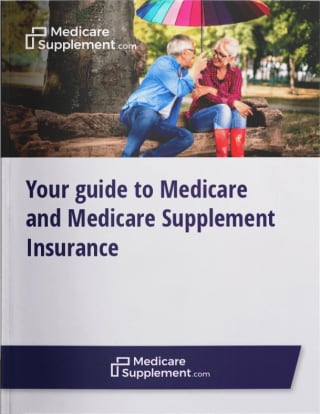If you decide to keep working past age 65, you will probably be able to keep your group health insurance plan until you retire. It is always a good idea to talk to your human resources department or benefits manager to learn how working past 65 will affect your health insurance, but read on to learn more about what might happen to your group health insurance coverage after you become eligible for Medicare.
Employer Insurance and Medicare Part A
Most people qualify for premium-free Part A (hospital insurance), so you can take this benefit when you are eligible and still keep coverage from your employer.
Employer Insurance and Medicare Part B
Like Medicare Part A, you will be eligible for Medicare Part B (medical insurance) when you turn 65. There is a monthly premium for Part B, and you have the option to opt out of receiving Part B coverage if you are still receiving health benefits from your employer, so long as you are still working there.
In most cases, you can delay your Part B coverage and continue to receive your group coverage until you eventually retire without a penalty. When you do leave your job, you should qualify for a special enrollment period. At this point, you will have eight months to sign up for Medicare Part B without having to pay a late penalty in the form of a higher premium.
Some employers have different policies regarding how insurance works for employees over 65. Even if you can keep your group coverage, the policy may start to work differently after you qualify for Medicare. If you are considering staying on your group coverage, talk to your human resources department or benefits manager and ask how the policy will work for you after 65.
Secondary and Primary Insurers
The payment structure is one factor that can help you decide whether it is worth it to continue to receive employee group coverage. After age 65, your group insurance can either become your primary or secondary insurer. Whichever it becomes can be based on your company’s size or other factors.
If your group plan remains your primary insurer, your existing coverage will continue to pay for its benefits, as it would normally. If your employer has coverage that is primary, you generally do not need to sign up for Medicare Part B (unless you are unhappy with your current coverage). You may still want the extra coverage from Medicare, so it is best to look into exactly what benefits you could be getting from both insurances before you make a decision.
If your group plan becomes your secondary insurer, it pays second. The secondary plan covers all or some of the health care expenses that the primary insurer has not paid. For example, a secondary insurer could pay the 20 percent coinsurance on a service covered by Original Medicare. If you have secondary insurance and do not have primary insurance, you risk having very little coverage for necessary medical services.
What Your Employer Cannot Do
When it comes to keeping health insurance from your employer after age 65, you have rights. Rules regarding health insurance past 65 aren’t always black and white, but the list below are some examples of actions your employer cannot do once you become eligible for Medicare.
- Your employer cannot require you to get on Medicare once you turn 65.
- Your employer cannot require you to get on a different kind of insurance (like by offering to pay for you Medicare Supplement Insurance or Medicare Advantage Premiums, for example).
- Your employer cannot offer you a different kind of insurance than people younger than you.
Note: The law that mandates the rules above (known as ERISA) only applies to businesses with more than 20 people. If you work for a business with less than 20 people, your employer may require you to enroll in Medicare Part B at age 65. Talk to your employer to learn more about your options.
Keep Reading
Still have questions about Medicare? Keep learning with these recommended articles for further reading:
What is Medicare Supplement Insurance?
10 Medicare Mistakes You Could Be Making
What Does Original Medicare Cover?



